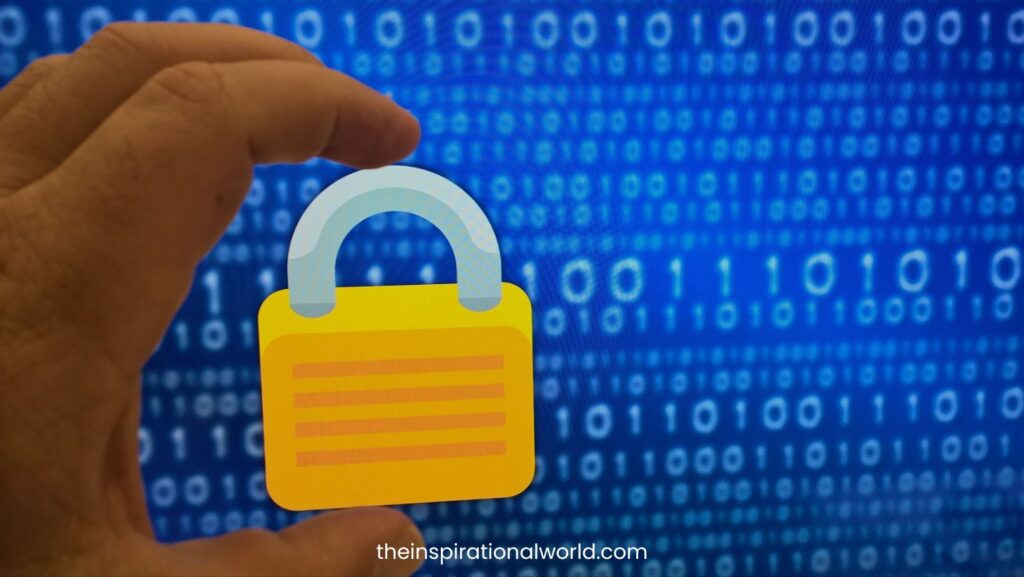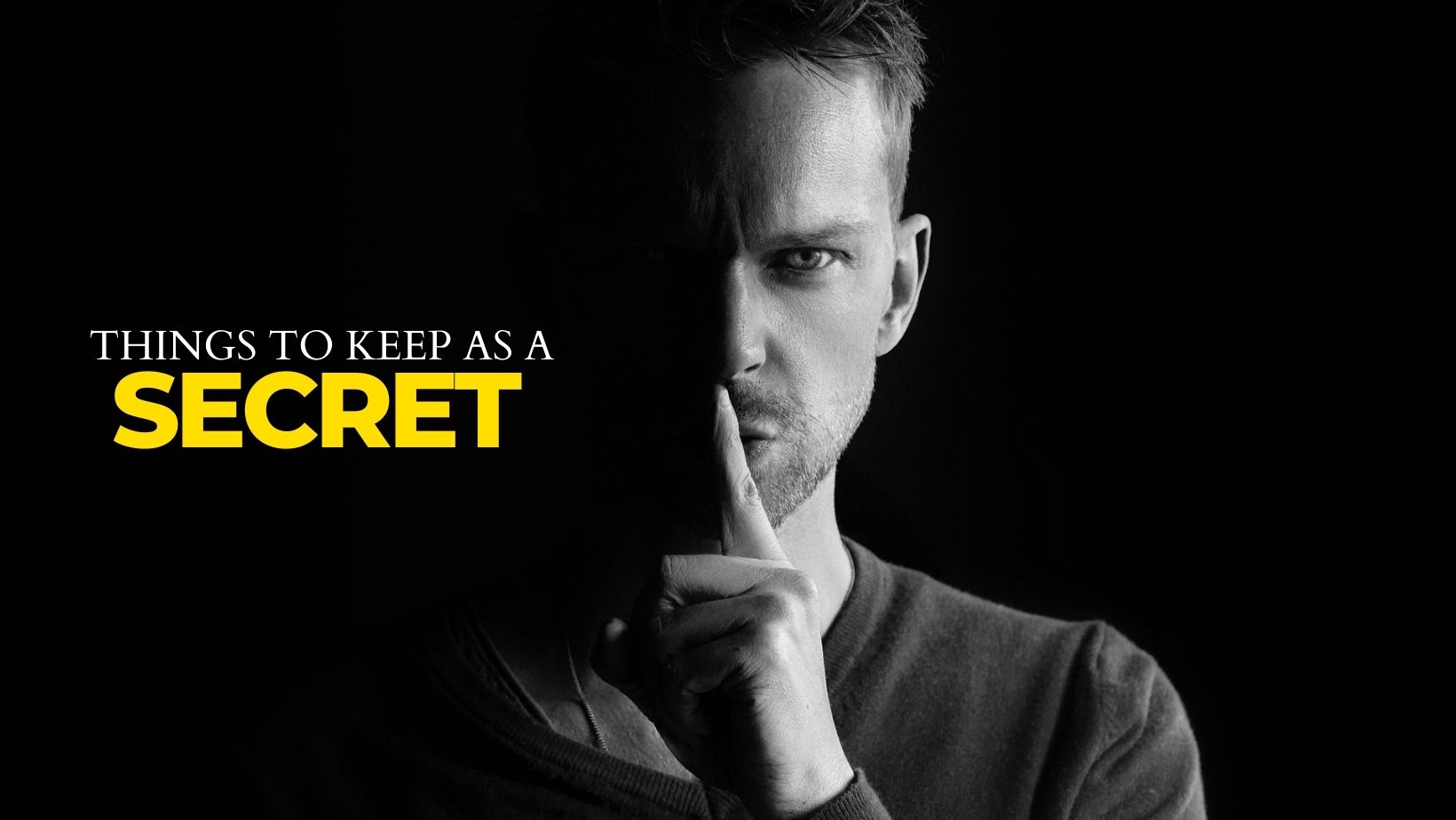Keep as a secret is a behaviour that many people engage in. There are some things that we should keep private, whether it’s for our own interests or to preserve the privacy of others. Ten items listed below ought to be kept private:
1. Personal health information:
Information regarding your health is one thing that you should keep as a secret. Your health information, which may include specifics about your condition, medical care, and drug usage, is private and confidential. Without permission, disclosing this information may violate someone’s privacy and cause them shame or injury.
In some circumstances, the release of health information may also have legal or professional repercussions, such as a HIPAA violation or a ban on employment. A person’s right to privacy must be respected, and medical information should be kept private unless there is a compelling cause to do so with that person’s agreement.
2. Private financial information:
Financial information about individuals is also the also most important things keep as a secret.This includes sensitive information like bank account numbers, credit card numbers, and investment portfolio details.
Sharing this sort of information puts a person at danger of identity theft, financial fraud, and other forms of financial exploitation. It is critical to keep this information private and only discuss it with those you trust, such as a financial adviser or business partner.
Taking steps such as using strong passwords, avoiding public WiFi for financial transactions, and frequently monitoring credit reports for any evidence of unauthorized activity may all help to protect sensitive financial information. Individuals can preserve their financial stability and avoid potential financial harm by keeping this information secret.
3. Personal relationships:

Sharing information about another person’s possessions might cause emotional pain, humiliation, or shame.
4. Work-related details:
Work-related information is one item that should be kept a secret. Confidentiality must be upheld at work, especially when discussing sensitive information like trade secrets, financial data, or the private information of clients or workers.
A company’s reputation may suffer if sensitive information is disclosed, and there may also be legal repercussions. It may also undermine personal and professional relationships by causing trust difficulties with clients or coworkers.
Following business policies and procedures, limiting information sharing to authorized parties, and being aware of the potential repercussions of disclosing sensitive information are all necessary to protect confidentiality in the workplace.
5. Information about logins and passwords:

Passwords and login information must be kept secret to prevent unauthorized access to personal or business accounts. Providing this information puts you at risk of identity theft, financial fraud, and cyber-attacks.
6. Discretionary agreements:
Examples of confidential agreements that must be kept private are non-disclosure and settlement agreements. If these agreements are breached, there might be legal ramifications and reputational damage.
7. Legally sensitive information:
Information that is legally sensitive should be kept private. This includes any material that is legally confidential or the disclosure of which might have serious legal repercussions. Confidential medical data, financial information, trade secrets, and legal processes are a few examples of legally sensitive information.
Legal action, job loss, and reputational harm can all occur from the disclosure of legally sensitive material, among other significant repercussions. This information should be kept private and secret, and only those parties should have access to it who have been given permission to do so. Legally sensitive material must be treated with the utmost care and confidentiality since failure to do so might have serious repercussions.
- Also Read: 15 Helpful Reminders For Over-thinker
8. Personal insecurities:
Personal concerns such as body image issues, mental health issues, or past trauma should be kept confidential. Disclosure of this knowledge can lead to feelings of guilt, humiliation and emotional anguish.
9. Personal beliefs and values:
Personal values and ideas, including political and religious views, should be kept private unless shared voluntarily by someone. The disclosure of this knowledge may lead to discussion or criticism from others.
10. Individual plans:

Personal plans, such as travel schedules, professional objectives, or life aims, ought to be kept private until someone is prepared to disclose them. Prematurely disclosing these plans may result in unwelcome pressure or criticism from others.
11. Embarrassing circumstances:
It’s best to keep humiliating incidents like mistakes or failures hidden to avoid unwarranted shame or judgement from others. It could be damaging to one’s self-esteem and confidence to discuss these events.
12. Snooping:

If no one feels comfortable disclosing them, family secrets including histories of abuse, addiction, or mental illness should be kept private. Without permission, divulging family secrets can injure family members and strain ties.
13. Personal correspondences:
Personal communications, including emails, texts, and letters, ought to be kept private until the recipient feels comfortable disclosing them. Without authorization, disclosing private letters can violate someone’s privacy and strain friendships.
14. Password-protected information:

Password-protected data should be kept confidential to prevent unauthorized access, for example on personal devices, online accounts or lockers. Sharing this information leaves you vulnerable to security breaches, financial fraud, and identity theft.
15. Other people’s secrets:
Other people’s secrets are among the most crucial things to keep private. It’s important to respect someone’s privacy and keep their secrets private when they confide in you and provide sensitive information.
Without their permission, disclosing their secrets might breach their trust and harm their relationships and reputation. Additionally, it may diminish your own reputation and dependability, making it more difficult for others to confide in you in the future.
It demonstrates your reliability and trustworthiness as a person who respects others’ privacy and well-being when you keep other people’s secrets. It is a symbol of deference and a crucial component in establishing and keeping solid and wholesome relationships.
In conclusion, sustaining secrecy, privacy, and trust all depend on safeguarding secrets. It’s critical to respect other people’s privacy and be aware of what information ought to be kept private. The wisest course of action is to err on the side of caution and keep sensitive information to oneself, even though certain information may be given in specific situations, such as for legal or safety concerns.
Related Article: How to Keep a Secret
